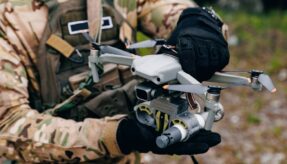
The Defence Science and Technology Laboratory (Dstl) is conducting research that could help reduce gastrointestinal infections in military personnel on overseas deployment.
These infections can be a significant issue for people visiting countries where there is limited access to clean water and inadequate sanitation, with those affected often unable to work, and a small number needing hospital treatment.
Anecdotal evidence indicated that more than half of British military personnel on overseas operations were affected with gastrointestinal infections such as travellers’ diarrhoea (TD), compared to a tenth of Gurkha soldiers.
Dstl contracted the University of Birmingham to undertake research which sequenced the bacterial composition of the gut of British and Gurkha soldiers and found significant differences in their microbiome.
The gut microbiome is impacted by a range of factors including ethnicity, diet, body weight, geography, antibiotic treatment, physical fitness and changes in environmental conditions. There is also evidence suggesting that specific components of the gut microbiome can contribute to ill health, including disease.
These findings provide an important insight into a potential mechanism for the reduced incidence of TD amongst Gurkha soldiers. This may in the future enable the gut microbiome of soldiers to be manipulated, to prevent or treat debilitating diarrhoeal diseases during operations.
Dstl is planning to fund a PhD at the University of Birmingham to expand on the data generated by understanding the other components of the gut, such as the viral component, and how the gut microbiome is affected by an overseas deployment.
Associate Professor Sarah Harding, Dstl technical partner, said: “Many travellers will be familiar with the inconvenience of an upset stomach whilst on holiday. Our military on critical operations do not always have the option of retiring to rest and recover. This work could improve operational effectiveness by helping to identify and develop treatments that could prevent illness in addition to those that may accelerate recovery.”
Professor Willem van Schaik (University of Birmingham) who is overseeing their research said: “Our study found a clear difference between the gut microbiome of Gurkha and non-Gurkha soldiers and this observation could provide an explanation for the increased resistance of Gurkhas to TD. Perhaps more importantly, it also suggests that by modulating the composition of the gut microbiome we may be able to prevent TD in troops deployed abroad.”








